Grow Beyond Better 2026
Manufacturing

- Organised manufacturing is the biggest private-sector employer in India with 70% of manufacturing units under the private sector
- More than 30 million people are employed by the sector both organized and unorganized
- Quarterly Gross Value Added (GVA) at Basic Prices for Q1 2019-20 grew by 0.6% as compared to growth of 12.1% in Q1 2018-19
- At current prices, Gross Capital Formation of the sector increased to INR 9.84 trillion in FY19 from INR 6.15 trillion in FY12
- India’s manufacturing Purchasing Manufacturers Index (PMI) PMI reached 27.40 in April 2020 from 51.8 in March 2020
- Merchandise export decreased by 4.78% y-o-y to reach $314.31 billion in FY20
- The government aims to achieve a 25% GDP share and 100 million new jobs in the sector by 2022
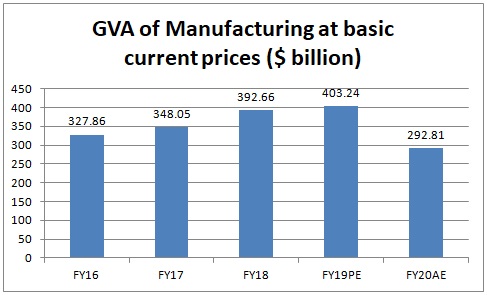
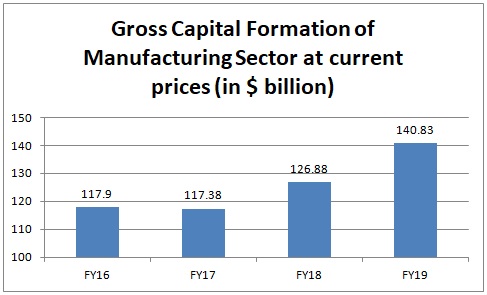
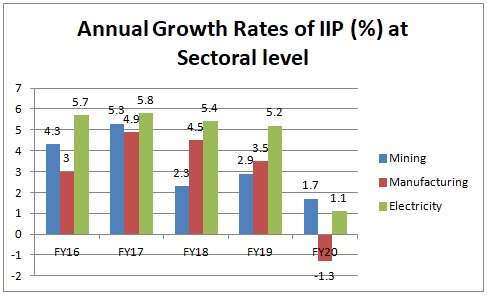
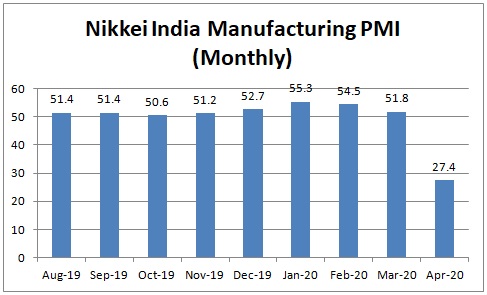
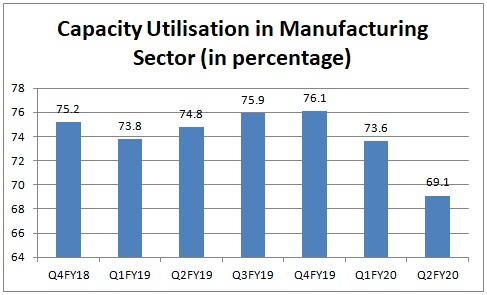
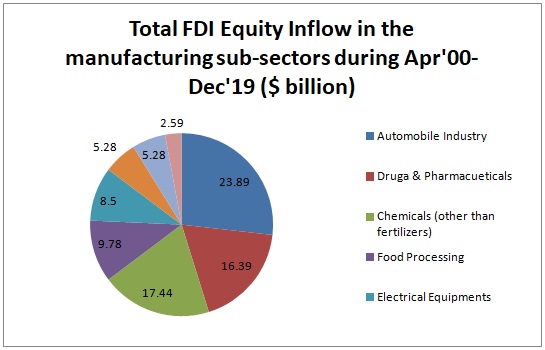
Competitive Advantage for India
- India has all the necessary ingredients for its major industrial push – a huge semi-skilled labour force, multiple Government initiatives like Make in India, high investments and a big domestic market
- Rapidly increasing middle class and overall population, an increasing share of the young working population in the total population
- A resource-rich country with fifth-largest reserves of coal in the world and immense potential for renewable energy like solar and hydro is ready to meet the need of the growing industry
Government Policies
- Initiatives like ‘Make in India’ and sector-specific incentives to various manufacturing companies, aiming to make India a global manufacturing hub
- Skill India, a multi-skill development programme, was started to equip the workforce with the necessary skills required by the sector
- Government incentives like free land to set up base and 24*7 power supply is making India competitive on a global scale
- National Manufacturing Policy was introduced in 2011 to increase the share of the manufacturing sector in India’s GDP to 25% and create 100 million jobs by 2021
- 100% FDI is approved in the sector through automatic route under the current FDI Policy
Investments
- Gross Fixed Capital Formation, which represents net investment in fixed assets, stood at INR 28,36,661 crore in H1FY20.
Market Overview
- Quarterly GVA at basic prices for FY20 grew by 0.7%
- The sector’s GVA at current prices was estimated at $403.47 billion in FY19
- The manufacturing component of the Index of Industrial Production (IIP) stood at 129.8 during FY20
- The overall index of eight core industries (ICI) stood at 131.9 during FY20
- The capacity utilization in India’s manufacturing sector stood at 69.1% in Q2FY20
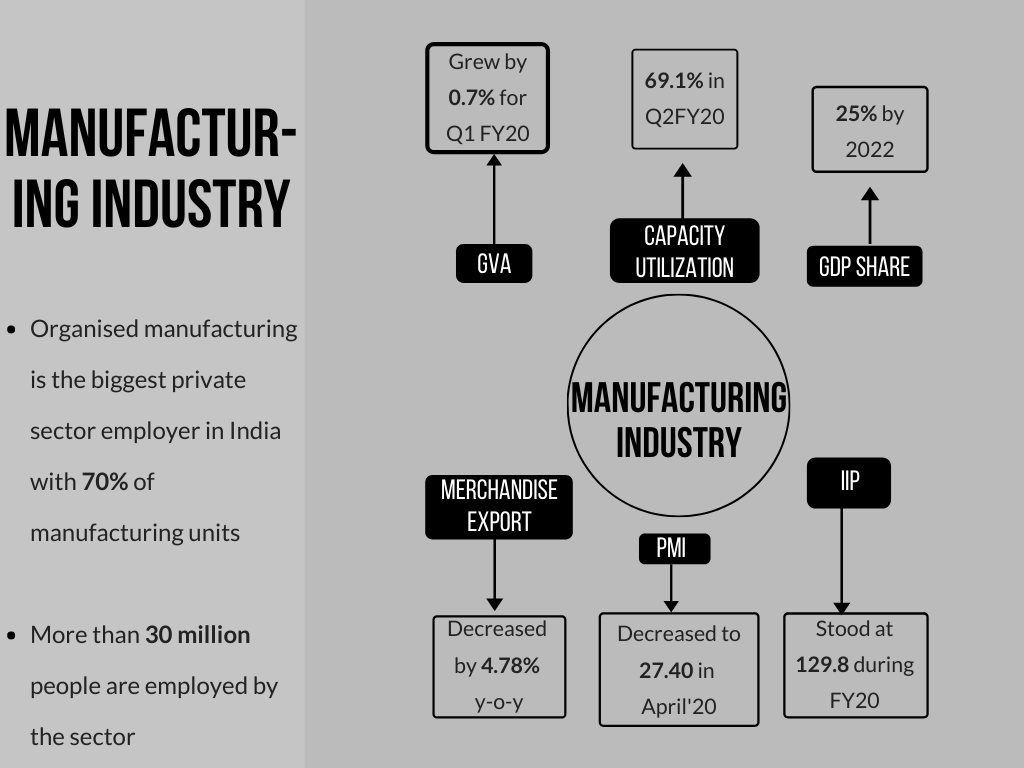
Strategies Updated
- Various organizations are looking at backward integration as a means to reduce costs
- Forward integration strategies also help organizations to realize cost benefits
- Indian manufacturing companies have started adopting digital technologies in their production processes, which will help in increasing efficiency
Growth Drivers
- Government initiative
- Public-Private Partnerships (PPP)
- International Investment
- Huge labour pool
- Domestic consumption
New Opportunities
- Business leaders expect global demand to play a major role in the expansion of India’s manufacturing industry
- 3D printing has huge potential in India with the rise of mega projects coming up
- The manufacturing sector has started implementing this new network of sensors and actuators using IoT for data collection, monitoring, decision making and process optimisation over internet infrastructure
- It is estimated that 65% of manufacturing companies will have high levels of digitalization by 2020.
Key Industry Organizations
- ACC Limited
- Deccan Cements
- JSW Steel
- OCM Birla Group
- Wonder Cement
- Zuari Cement
Sources
https://www.ibef.org/download/Manufacturing-May-2020.pdf
https://www.ibef.org/download/Manufacturing-October-2019.pdf
Login to continue reading
And access exclusive content, personalized recommendations, and career-boosting opportunities.
Don't have an account? Sign up















Comments
Add comment